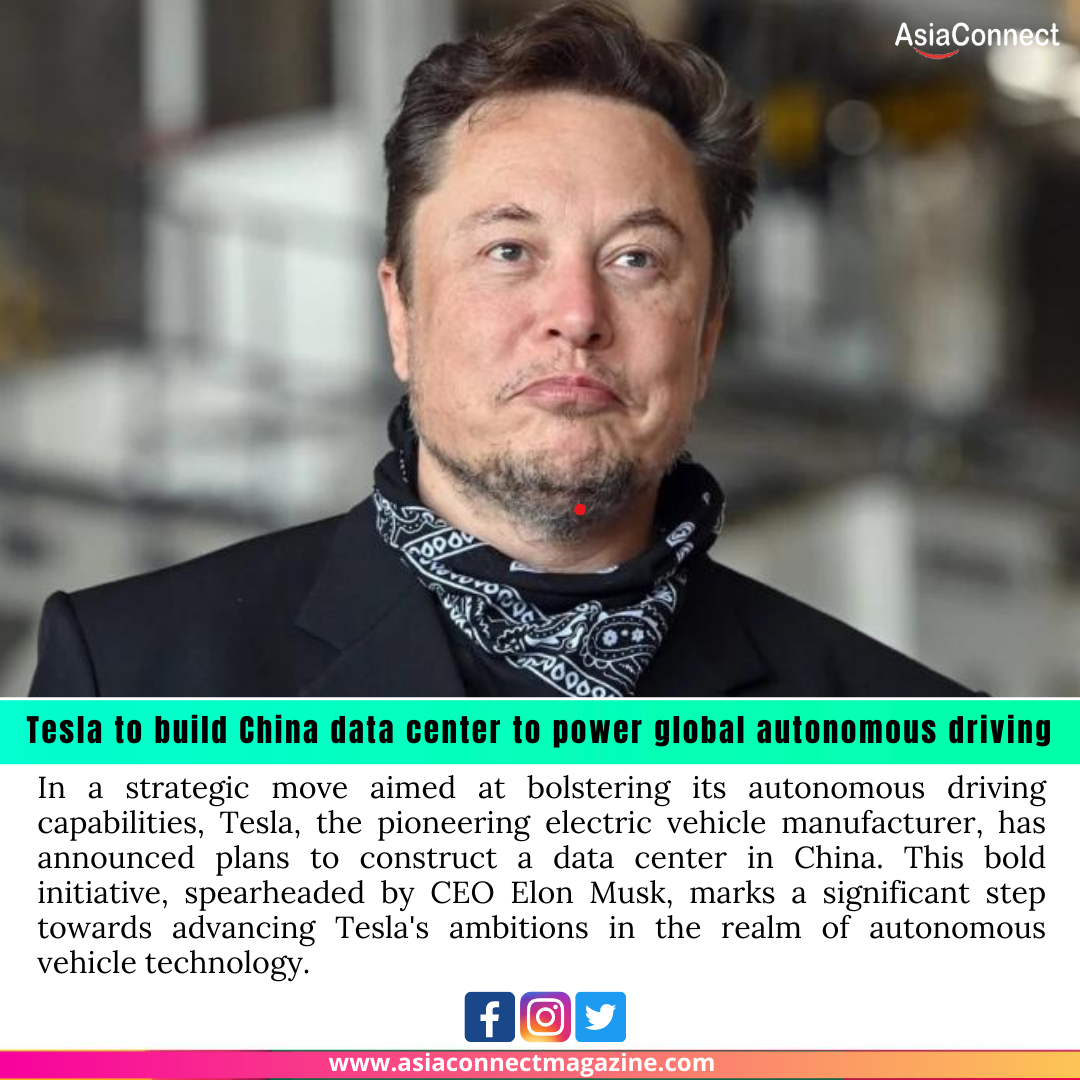In a strategic move aimed at bolstering its autonomous driving capabilities, Tesla, the pioneering electric vehicle manufacturer, has announced plans to construct a data center in China. This bold initiative, spearheaded by CEO Elon Musk, marks a significant step towards advancing Tesla’s ambitions in the realm of autonomous vehicle technology. However, the project faces challenges due to US sanctions impacting Tesla’s collaboration with chipmaker Nvidia. Despite these hurdles, Tesla remains steadfast in its commitment to revolutionizing the future of mobility through innovation and strategic partnerships.
Tesla’s decision to establish a data center in China underscores the company’s recognition of the country’s pivotal role in the global automotive and technology landscape. China, home to the world’s largest automotive market and a burgeoning tech ecosystem, presents immense opportunities for Tesla to expand its footprint and accelerate the development of autonomous driving technologies. By leveraging China’s robust infrastructure and talent pool, Tesla aims to enhance its data processing capabilities, enabling more efficient and sophisticated autonomous driving systems.
Elon Musk’s outreach to Nvidia for the data center project reflects Tesla’s strategy of collaborating with industry leaders to harness cutting-edge technologies. Nvidia, renowned for its expertise in artificial intelligence (AI) and graphics processing units (GPUs), is a natural partner for Tesla in its pursuit of advancing autonomous driving capabilities. However, the project has encountered a setback due to US sanctions restricting the sale of Nvidia’s most advanced chips to China. This regulatory hurdle poses a challenge for Tesla’s plans, necessitating a reevaluation of its partnership strategy and technological approach.
Despite the obstacles posed by sanctions, Tesla remains undeterred in its quest to drive innovation and disruption in the automotive industry. The company’s commitment to autonomy is unwavering, and it continues to explore alternative solutions and partnerships to overcome regulatory constraints. As Tesla navigates the complexities of global geopolitics and regulatory frameworks, it remains focused on its long-term vision of enabling safer, more efficient transportation through autonomous driving technology.
The construction of a data center in China signifies Tesla’s proactive approach to localization and market expansion. By establishing a presence in China, Tesla not only gains access to a vast consumer base but also strengthens its position in the competitive Chinese automotive market. Moreover, the data center will enable Tesla to comply with local data storage regulations, demonstrating its commitment to regulatory compliance and responsible data management practices.
In addition to bolstering its autonomous driving capabilities, Tesla’s data center in China holds strategic implications for its broader business operations. The facility will serve as a hub for data analytics, machine learning, and AI research, empowering Tesla to derive actionable insights from vast amounts of vehicle and environmental data. These insights will not only inform the development of autonomous driving systems but also drive innovation across Tesla’s product portfolio, enhancing customer experiences and fueling future growth.
Looking ahead, Tesla’s foray into data center construction in China represents a pivotal chapter in its journey towards realizing the full potential of autonomous driving technology. Despite the challenges posed by regulatory constraints and geopolitical tensions, Tesla remains committed to pushing the boundaries of innovation and transforming the future of transportation. As the automotive industry undergoes a profound paradigm shift towards electrification and autonomy, Tesla stands at the forefront, poised to redefine mobility for generations to come.





